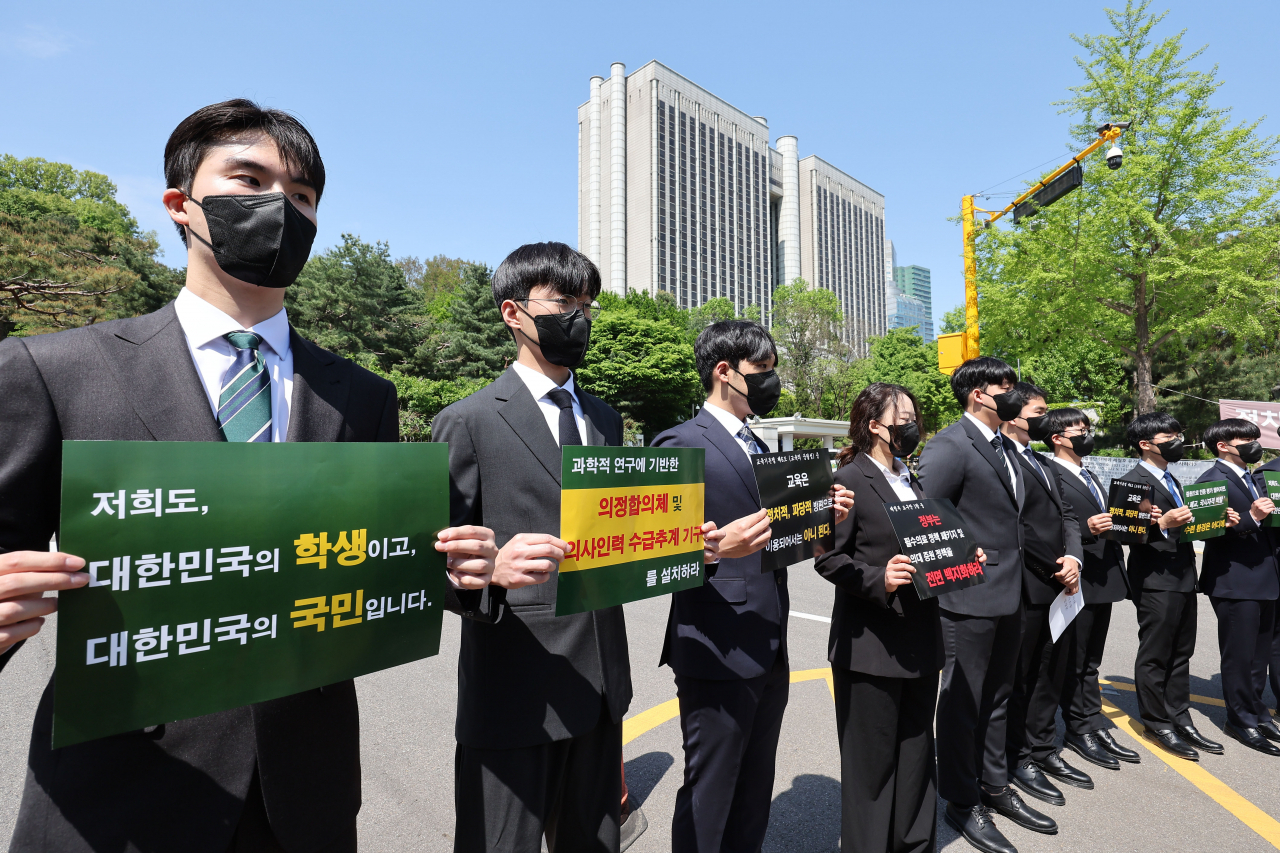Medical standoff deepens as doctors reject new med school plan, talks
By Park Jun-heePublished : April 22, 2024 - 14:52

South Korea entered another round of medical standoff as doctors refused to accept a government proposal to allow medical schools to reduce their enrollment quotas for next year, or join a presidential committee on medical reform.
In response, the Health Ministry has stated that its stance remains unchanged regarding the scrapping of the plan to expand the annual medical student admissions quota by 2,000.
The government made a bold step last week with a new proposal that gives temporary flexibility to medical schools, the health minister said, urging the medical community to engage in the dialogue.
The government proposed to allow medical schools to slow their expansion by cutting the number of new places by up to 50 percent for the first year of enrollment. The process of adjusting the number is up to each university, as long as they do not reduce the number by more than 50 percent, according to the government,
“Instead of arguing to bring medical reform discussions back to square one or pushing back the plan for a year, please come up with a single, unified proposal based on scientific and rational grounds,” Health Minister Cho Kyoo-hong was quoted as saying during Monday’s government response meeting.
Second Vice Health Minister Park Min-soo also urged the medical circle to propose an alternative before it is too late, given that the college admissions process for the 2025 academic year is approaching.
“If each college revises the plan for its 2025 school year by the end of April, the process (for the medical school admissions quota) will end,” Park said during Monday’s press briefing, adding that time is running out to make adjustments.
In addition, Park called on the Korean Medical Association -- the largest coalition of doctors’ groups, here with some 140,000 members -- and junior doctors to participate in the special medical reform commission and voice their opinions.
“The government would like to say that it is always open to one-on-one talks with various sectors, such as the medical community, at any time,” he said.
The remarks come after the KMA’s emergency committee lambasted the decision to grant autonomy to medical schools, pointing out that it was not a “fundamental solution” that could resolve the issue.
“(The KMA’s emergency committee) recognizes that the government’s announcement is an attempt to address the current situation. But we can’t accept it because it’s not a fundamental solution to it,” the statement read.
It also turned down the government’s offer to join the committee, noting that the council “lacks clarity about its role and responsibilities” and that it would be “meaningless to take part if the medical community’s opinions are not properly reflected.”
Throwing their weight behind senior doctors, some 1,363 students from 10 medical colleges on Monday afternoon filed for injunctions against their university presidents, asking the court to halt the schools’ revision of an admissions plan to reflect the quota hike.
Meanwhile, the Korean Alliance of Patients Organization issued a statement on the same day to plead with medical professors to stand by patients, citing reports that Thursday marks a month since they submitted their resignations, which, by law, will become effective.
“It’s concerning that (medical professors’ absence) would bend the will of patients with severe and rare incurable diseases to recover,” the group said.
The government has said that there are currently no resignations filed by medical professors that are scheduled to be processed.



















